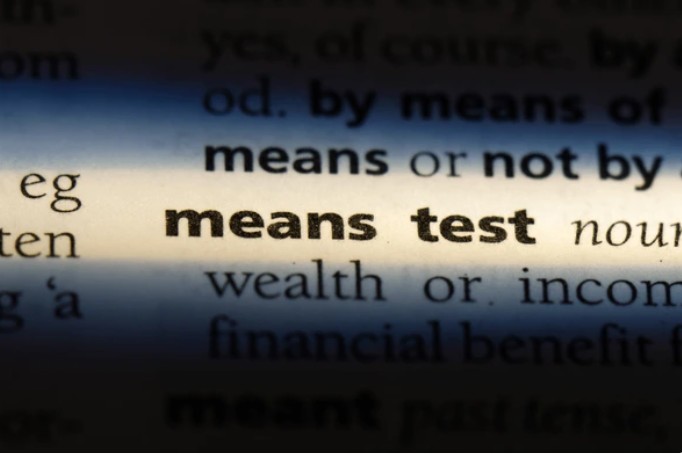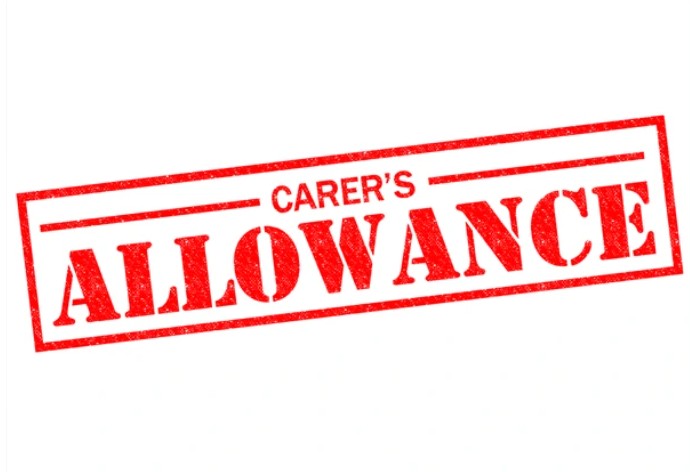What Financial Support Is Available for the UK’s Unpaid Carers?
In the UK, more than 6.5 million people are informal carers—looking after family members, partners, or friends who need help due to illness, disability, or mental health conditions. Most of this care is unpaid, often provided at great personal cost, with carers sacrificing employment, financial security, and even their own health to support someone they love.
Yet despite their essential role, carers often receive limited financial recognition. Carer’s Allowance is one of the few benefits specifically tailored to this group. While modest, it can offer much-needed financial relief, especially when combined with other support. But navigating the eligibility rules, especially when it comes to income—is often confusing. One question that’s frequently asked is: “Is Carers Allowance means tested?” This article breaks down the answer and provides all the context carers in 2025 need to make informed decisions.
What Does “Means Tested” Really Mean in the UK?

The term “means-tested” refers to a type of financial assessment where your eligibility for a benefit depends on your income, savings, and overall financial situation. When a benefit is means tested, the government calculates how much money you and your household have and uses that information to decide whether you qualify, and if so, how much you should receive.
Common examples of means-tested benefits include:
- Universal Credit – Assessed based on earnings, savings, and household income.
- Housing Benefit – Takes into account income, rent, and capital.
- Pension Credit – Assessed based on retirement income and savings.
In these cases, even a small increase in income or savings can reduce the amount you receive—or disqualify you entirely. But when it comes to Carer’s Allowance, things work differently. It’s not assessed in the same all-encompassing way.
Is Carer’s Allowance Actually Means Tested?
The short answer is no—Carer’s Allowance is not means tested in the traditional sense. The Department for Work and Pensions (DWP) does not consider your total household income, your partner’s earnings, or any savings you may have. You could have thousands of pounds in the bank or a high-earning spouse and still be eligible.
However, the benefit does include an earnings rule, which means your own personal income from employment or self-employment must be under a specific threshold to qualify. This is where confusion often arises—many people mistakenly believe this income cap makes the benefit means tested. But technically, it’s a non-means-tested benefit with earnings conditions.
This subtle difference is important because it widens eligibility. Even carers from higher-income households can qualify as long as their own earnings are below the threshold and they meet the care criteria.
What Is the 2025 Weekly Earnings Limit for Carer’s Allowance?
For the 2025/26 tax year, the Carer’s Allowance weekly earnings limit is £151 (net). This means the DWP will only award the allowance if your weekly earnings—after deductions—don’t exceed that amount.
Here’s what counts as deductible when calculating your earnings:
- Income Tax and National Insurance contributions
- 50% of any private or workplace pension contributions
- Some additional expenses, such as costs related to caring for a child or disabled adult while you work (though these must be proven and agreed by the DWP)
It’s vital to understand that this is not averaged over the month—it applies week by week. If your pay varies (e.g., zero-hour contracts, freelance work), going over the limit for a single week could suspend your payments. The DWP does sometimes allow averaging for fluctuating incomes, but this must be arranged and agreed in advance.
Why Is There an Earnings Limit If It’s not means-tested?
Although Carer’s Allowance isn’t based on need in the traditional sense, the earnings cap is in place to reflect the assumption that carers who work full-time are unlikely to be providing 35 hours of care per week—which is the minimum requirement.
The allowance is designed for people whose caring responsibilities significantly restrict their ability to work. As such, it aims to support those who are truly sacrificing income to care for someone else. The limit ensures that the support is going to those who need to reduce their working hours or give up employment altogether to fulfil their caring role.
So while it may look like a means test on the surface, it’s actually a way to confirm that you meet the time and care commitment expected by the benefit.
Who Can Claim Carer’s Allowance in 2025?

Carer’s Allowance is available to individuals, not households. To claim, you must satisfy all of the following conditions:
- Be aged 16 or over
- Spend at least 35 hours per week caring for someone
- Earn £151 or less per week (after deductions)
- Be not in full-time education (over 21 hours a week)
- Not be subject to immigration control
Importantly, the person you care for must be receiving a qualifying disability benefit, such as:
- Personal Independence Payment (PIP) – Daily living component
- Disability Living Allowance (DLA) – Middle or higher care component
- Attendance Allowance
- Armed Forces Independence Payment
- Constant Attendance Allowance
You do not need to be living with the person you care for, and you don’t need to be a relative. The role could include physical assistance, helping with medication, managing appointments, shopping, or even emotional support.
How Much Is Carer’s Allowance Worth in 2025?
As of April 2025, the Carer’s Allowance rate is £83.30 per week, or approximately £4,331.60 per year. Payments are made directly into your bank account and can be paid:
- Weekly in advance, or
- Every four weeks in arrears
While the amount may not reflect the actual value of unpaid care, it can help cover essentials like transport, food, or respite care. However, it’s important to note:
- Carer’s Allowance is taxable if your total income exceeds the personal allowance threshold
- You earn Class 1 National Insurance credits, which help protect your future State Pension entitlement
Even if the amount seems modest, the pension credit and underlying entitlement linked to it can make a significant difference when planning long-term financial security.
Can You Claim Carer’s Allowance Alongside Other Benefits?
Yes, but complex interaction rules apply. Carer’s Allowance can affect other benefits you or the person you care for receive. For example:
- If you receive Universal Credit, you may also get the Carer Element (an additional £198.31/month in 2025)
- If you receive State Pension, your Carer’s Allowance may overlap, but you could get an underlying entitlement that boosts means-tested benefits
- The person you care for could lose the Severe Disability Premium if you claim Carer’s Allowance
So while you may not get “double payments,” a Carer’s Allowance claim can sometimes increase your overall entitlement through related benefits. It’s wise to seek advice from Citizens Advice or a benefits advisor before making a claim if you’re already receiving support.
Do Carers in Scotland Receive Additional Payments?

Yes—Scotland offers a unique top-up called the Carer’s Allowance Supplement, managed by Social Security Scotland. This is paid automatically to eligible carers twice a year, in June and December, and is intended to reflect the additional financial pressures on unpaid carers.
For 2025, each payment is £270.50, bringing the annual supplement to £541. This is a separate, non-taxable payment and does not affect other benefits. It’s part of Scotland’s approach to enhancing the welfare of carers beyond the standard UK offering.
This supplement applies only to residents in Scotland and is a valuable reminder to always check for regional variations in support.
What If You Exceed the Earnings Limit One Week?
If you earn more than £151 in any single week, your Carer’s Allowance will stop for that period. This rule is strictly enforced by the DWP. Even £1 over could result in an overpayment notice.
However, if your earnings fluctuate, you may be able to request an averaging arrangement, particularly if your income varies due to:
- Irregular shifts or overtime
- Freelance or contract work
- Seasonal fluctuations
It’s crucial to keep detailed records and notify the DWP of any changes. Failure to do so can result in:
- Overpayment demands
- Repayment obligations
- Suspension of benefits
In some cases, you may also face civil penalties for incorrect declarations. Always report changes immediately—even if temporary.
What Common Misunderstandings Do Carers Face?
Many eligible carers miss out on Carer’s Allowance because of misunderstandings or assumptions, including:
- Believing savings or a partner’s income affect eligibility—they don’t.
- Assuming they must be related or live with the person they care for—not true.
- Thinking they can’t work at all—you can, up to the earnings limit.
- Not knowing that “underlying entitlement” can still improve benefit calculations.
Clearing up these misconceptions is essential. Carer’s Allowance is not just a payment—it’s a gateway to wider support.
How Do You Apply for Carer’s Allowance?
Applying is straightforward. You can apply:
- Online: www.gov.uk/carers-allowance
- By phone: 0800 731 0297
- By post:
- Carer’s Allowance Unit
Mail Handling Site A
Wolverhampton
WV98 2AB
- Carer’s Allowance Unit
You’ll need:
- Your National Insurance number
- Your bank details
- Details of the person you care for (including their NI number and disability benefit)
- Your income and employment information
The process typically takes 3–4 weeks. You can backdate a claim up to 3 months, so don’t delay applying.
Final Thoughts: Why This Knowledge Matters for Carers in 2025
Unpaid carers provide billions of pounds worth of support each year, often at the cost of their own wellbeing and financial stability. Carer’s Allowance might not be means tested, but understanding its rules, limits, and interactions is essential to making it work for you.
If you’re a carer in the UK—whether you’re new to it or have been for years—take the time to explore your options. The support may be small, but the peace of mind and extra financial cushion can make a real difference in your day-to-day life.

Leave a Reply